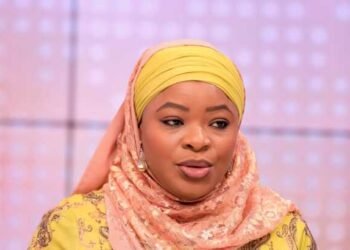Dr. Theophilus Acheampong, an economist and political risk analyst, has advised Ghana to use the IMF programme to negotiate some debt restructuring with commercial and multilateral creditors.
He noted that this will ensure that Ghana benefits from its new deal with the IMF because the country failed to take advantage of earlier schemes like the Debt Service Suspension Initiative (DSSI).
“Debt restructuring would create the space to spend on priorities such as food and fuel. However, the country must urgently reinstate the Fiscal Responsibility Act, 2018 – which was suspended during the pandemic – with the 5% cap on fiscal deficits in any given year. It must also publish an updated medium-term debt management plan that either caps or places a moratorium on the contraction of non-concessional loans for a while”.
Dr. Acheampong
Highlighting ways through which the country can navigate its way out of the current economic difficulties, the Economist noted that Ghana must implement fully any agreed structural reforms to put the economy on a sound footing. This includes significant cuts in the largesse and waste in government and public service delivery.
“The President must cut the size of his government and enforce key performance targets for key socio-economic sectors such as public finances, education, energy, and health, among others. Other reforms should include the aggressive restructuring of state-owned enterprises and hiring of competent hands, removing of some, and improvements in the targeting of subsidies as well as trimming the government payroll and flagship initiatives like free secondary schooling”.
Dr. Acheampong
He further indicated that government must also insist on a strong social protection element, especially for cash transfer programmes such as Livelihood Empowerment Against Poverty (LEAP) and capitation grants for public basic schools.
Need to aggressively grow and diversify small open economy
Still on putting the economy back on track, Dr. Acheampong underscored that Ghana must aggressively grow and diversify its small open economy to reduce reliance on primary commodities such as cocoa, gold and oil. According to him, these are the major export earners for the country but are subject to significant price volatility.
“Ghana has a great opportunity to pursue green growth policies in new industrial clusters such as the critical minerals value chain and renewables. These can be supported by a reinvigorated Ghana Infrastructure Investment Fund (GIIF) and the Minerals Income Investment Fund (MIIF), among other players”.
Dr. Acheampong
Dr. Acheampong stressed that Ghanaians, especially the two main parties, must stop over politicizing the economic issues. “Populism is clouding effective decision-making. What the current crisis reveals again is the urgent need for broad-based national development plan or framework”, he said.
Ghana is again seeking assistance from the International Monetary Fund (IMF) to enable the country to meet its payments to the rest of the world and restore the health of government finances. It is the second time in the past three years and 18th since independence in 1957 that Ghana has turned to the IMF for help.
Ghana’s approaches to the IMF, which have averaged every four years over the past 65 years, tell a story of recurrent failure of government to properly build the economy to withstand internal and external shocks, Dr. Acheampong said.
The Associate Lecturer at the University of Aber further expressed that Ghana’s lack of fiscal discipline, and its recent history of dependence on foreign financing – with as much as 48% of the total public debt being held by external investors – leaves the country vulnerable to swings in investor sentiment, and accompanying portfolio investment selloffs.
“The request to IMF also underscores the fact that Ghana has much deeper structural economic problems. These require a multi-stakeholder approach to resolve. Unfortunately, the pervasive and deeply entrenched nature of the country’s Fourth Republican clientelist politics which manifests in a ‘winner take all’ approach to governance has often distorted a much-needed national debate on what needs to be done and how it must be done”.
Dr. Acheampong
As such, he advised government to fix the structural problems – such as its over-reliance on primary commodity exports – and live within its means. Ghana’s fiscal policymaking has shown a bias towards overspending during good times, with little being saved to help when there are downturns or external shocks, he said.
READ ALSO: IEA Calls For A Further 100-150 Basis Points Hike In Policy Rate




















